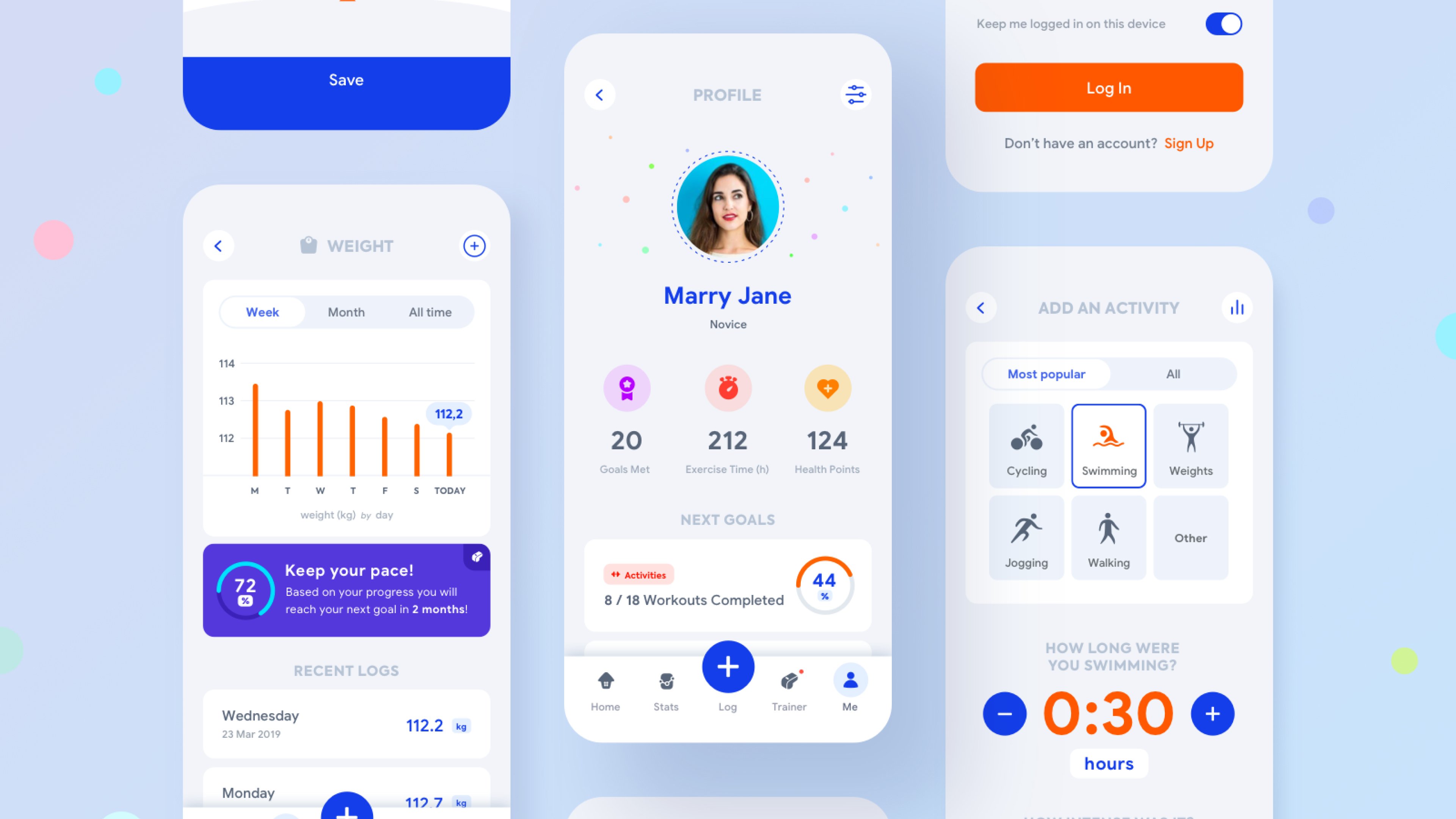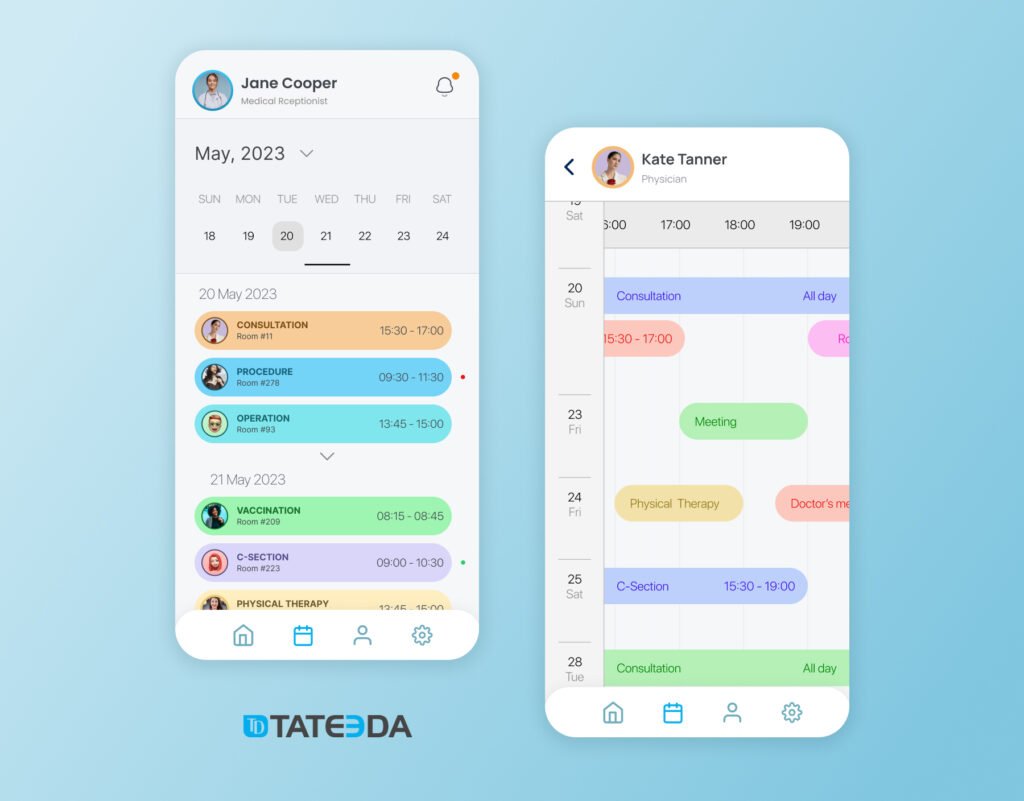Finest Practices for Developing a Mobile App for Clinics That Satisfies Patient Needs
Finest Practices for Developing a Mobile App for Clinics That Satisfies Patient Needs
Blog Article
The Future of Healthcare: Why Clinics Required a Mobile Application Today
As the health care landscape proceeds to advance, facilities encounter placing pressure to adjust to patient expectations for higher comfort and availability. The assimilation of mobile applications can offer as a crucial technique for boosting client engagement and enhancing operations.
Altering Individual Expectations
As the landscape of healthcare progresses, patient expectations are going through a considerable change. Today's clients are progressively looking for ease, ease of access, and customized treatment. With the surge of modern technology, specifically mobile applications, people currently anticipate a seamless integration of medical care services right into their lives. They prefer the ability to manage visits, access clinical records, and connect with medical care service providers with their smart devices, showing a shift towards a much more aggressive approach to wellness management.
Furthermore, individuals are becoming much more notified and equipped, typically looking into treatments and conditions on the internet before appointments. This heightened awareness is combined with a demand for transparency in health care processes, consisting of cost quotes and treatment options. Because of this, service providers are compelled to adjust by taking on digital tools that enhance the patient experience.
The expectation for timely and efficient interaction has actually never been greater, with several people thinking about responsiveness an important element of quality treatment. mobile app for clinics. In this advancing landscape, healthcare companies have to acknowledge these transforming assumptions and take advantage of mobile applications to cultivate a more patient-centric method, ensuring that they not just fulfill however go beyond the requirements established by today's informed consumers
Enhancing Client Engagement

Mobile applications promote interaction between patients and healthcare providers, allowing real-time appointment scheduling, reminders for medication adherence, and straight messaging features. These capabilities not only boost benefit yet additionally construct a sense of accountability among patients. Furthermore, mobile applications can supply instructional web content tailored to private demands, assisting clients much better recognize their conditions and treatment choices.
The combination of gamification aspects within medical care apps can additionally inspire patients to engage in healthy behaviors, enhancing positive way of life changes. Eventually, enhancing client involvement with mobile applications leads to improved health and wellness results, greater patient complete satisfaction, and an extra collective health care experience.
Streamlining Facility Workflow
Improving clinic procedures is essential for enhancing process effectiveness and enhancing individual care. The application of mobile applications can substantially reduce administrative concerns, allowing health care providers to focus more on person communications. By automating appointment scheduling, client check-ins, and invoicing processes, clinics can decrease wait times and enhance general operational efficiency.
Mobile apps likewise help with real-time accessibility to client documents, making it possible for healthcare experts to make educated decisions rapidly. This immediacy not only boosts the quality of treatment yet also minimizes the likelihood of mistakes related to lost or outdated important source info. Moreover, leveraging mobile technology sustains a more orderly method to managing individual follow-ups and therapy strategies, making certain that no essential actions are forgotten.
This permits for prompt replenishment and aids avoid disruptions in person treatment due to equip lacks. By incorporating these performances right into their day-to-day operations, clinics can create an extra effective and cohesive atmosphere, inevitably leading to improved individual results and complete satisfaction.
Improving Interaction Networks
Effective communication is often pointed out as a cornerstone of high quality health care delivery. In today's fast-paced medical atmosphere, mobile applications can substantially boost interaction networks between centers, clients, and medical care providers. By integrating mobile apps right into their operations, clinics can promote real-time interactions, making certain that patients obtain timely details concerning their consultations, test results, and therapy plans.
Mobile apps additionally encourage individuals to connect straight with their healthcare groups through secure messaging features. This direct line of interaction promotes a feeling of involvement and enables immediate information of problems, which can bring about far better adherence to therapy procedures. Press notices can remind individuals of upcoming appointments or medicine schedules, lowering no-show prices look at this website and boosting general wellness end results.

Staying Competitive in Health Care
In a swiftly advancing health care landscape, organizations need to focus on technology and flexibility to preserve an one-upmanship. The assimilation of mobile applications into medical care services is no more optional; it is important for centers intending to improve person involvement, simplify operations, and enhance total solution distribution.
As clients increasingly depend on digital systems for health and wellness monitoring, clinics that fall short to embrace mobile innovation risk falling behind. A properly designed mobile application can supply attributes such as appointment organizing, telemedicine examinations, and access to medical documents, giving patients with comfort and cultivating commitment.

Competitors are also spending in mobile solutions, so staying ahead needs constant enhancement and staying educated about technological developments. Centers have to not only carry out mobile applications yet additionally participate in normal updates and improvements. Ultimately, the effective integration of mobile technology will distinguish forward-thinking health care organizations and established the criteria for patient-centric treatment in an electronic world.
Final Thought
In verdict, the more helpful hints assimilation of mobile applications in clinics is crucial to attend to the progressing landscape of patient assumptions. Ultimately, the critical implementation of mobile applications represents a critical action towards providing personalized and accessible healthcare, therefore fulfilling the requirements of today's encouraged clients.
Inevitably, enhancing patient involvement with mobile applications leads to boosted health and wellness end results, higher patient complete satisfaction, and a much more joint medical care experience.Mobile apps likewise facilitate real-time access to patient records, allowing medical care specialists to make educated choices swiftly. In today's fast-paced clinical atmosphere, mobile applications can substantially improve interaction networks between centers, people, and medical care service providers.Mobile apps additionally equip clients to communicate directly with their medical care groups via safe and secure messaging attributes. Eventually, the strategic implementation of mobile apps represents a crucial action toward supplying customized and accessible health care, thereby satisfying the needs of today's encouraged individuals.
Report this page